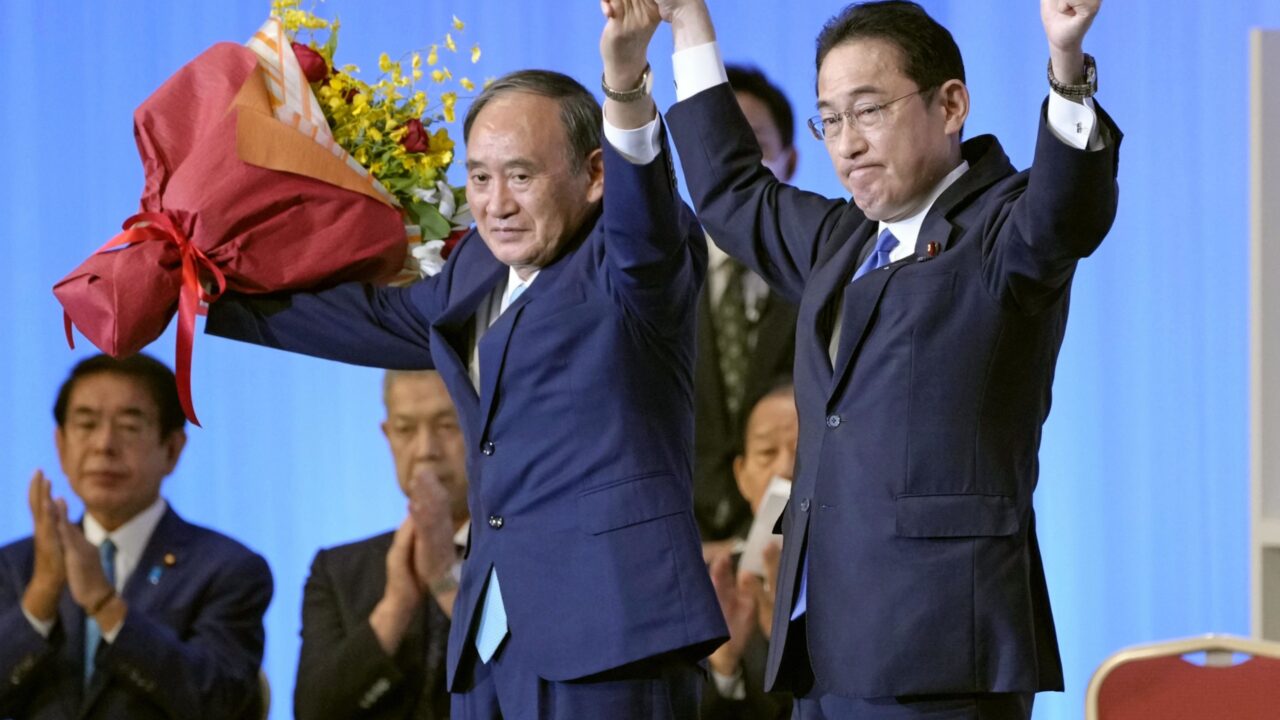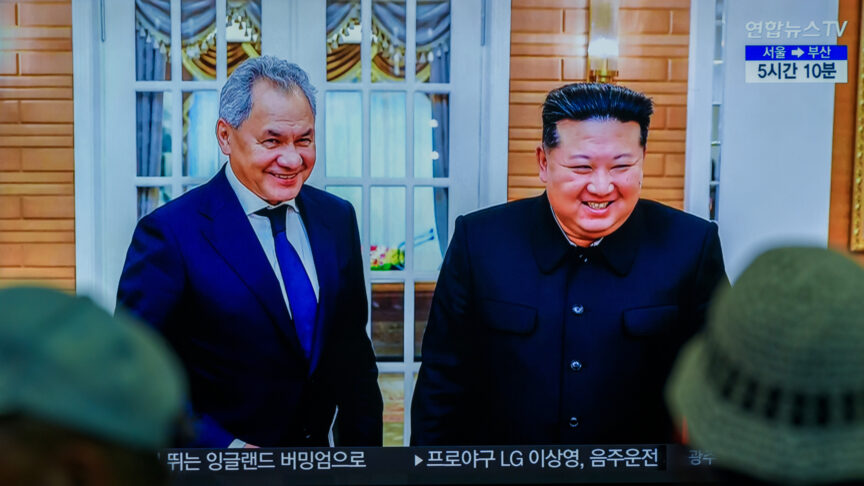Tough dove: Japan’s China policy under its next leader
Japan’s citizens and leaders across the political spectrum are increasingly aware that China poses a security threat. The country’s next prime minister is unlikely to make a dramatic change to the China policy set by his predecessors
On 29 September, Japan’s dominant Liberal Democratic Party (LDP) held an open election to select its new president. The contest – which was unusual due to the number of candidates and differing factional support of LDP heavyweights that it involved – resulted in a victory for Fumio Kishida, who beat three other contenders, two of them women. Thanks to the LDP’s parliamentary majority, Kishida will most likely be confirmed as the next prime minister in a parliamentary session on 4 October, and will stand as the LDP’s candidate in a general election in November. He will replace Yoshihide Suga, whose term in office lasted only 12 months. Kishida’s victory raises two pressing questions: will he be able to stay in power long enough to avoid the return of revolving-door Japanese prime ministers, and to remain a stable and reliable partner on the global stage? And how will he deal with China?
Kishida is an experienced politician from the LDP’s younger generation. His security and foreign policy will reflect his experience as Japan’s longest-serving foreign minister, having held the role for more than four years under the premiership of Shinzo Abe.
He is widely considered to be a dovish moderate who is honest and calm – although he is unpopular with the general public. Until now, Kishida’s diplomatic philosophy has been US-centric, and he has generally prioritised Japan’s economic recovery over a rearmament policy.
Tokyo is becoming increasingly concerned about the Sino-American rivalry, China’s military build-up and expansionist behaviour, and tense relations between Beijing and Taipei. In addition, China’s and Taiwan’s competing applications to join the Comprehensive and Progressive Agreement for Trans-Pacific Partnership (CPTPP) have made it all the more urgent for Japan to define its position on the two countries, and to determine the general direction of its trade and defence policies in relation to China.
Suga has used relatively tough language on China – as was particularly clear at a summit with US President Joe Biden in April 2021, when he became the first Japanese prime minister to refer to the “importance of peace and stability across the Taiwan Strait”. This declaration signalled a shift away from cooperation, and towards confrontation, with Beijing.
Accordingly, dealing with China will be a top priority for Kishida’s government. His moderate approach to diplomacy with Beijing was effective during his term as foreign minister. But, during the LDP leadership campaign, he came out on the issue more strongly – referring to China as presenting a challenge that forces Japan to rethink its military capabilities.
Kishida will use the kind of language on China introduced by Suga, while also focusing on a multilateral approach with like-minded democracies in dealing with that challenge. Like his predecessors, he will promote the concept of a “Free and Open Indo-Pacific” while counterbalancing China. And he will not make a decisive break with the policies of the Suga and Abe administrations.
Kishida plans to appoint a special adviser to the prime minister in charge of human rights, a clear sign that China will remain high on his political agenda
Kishida has adopted the position that – so long as there is a significant global threat to the basic values of freedom, democracy, the rule of law, and human rights – Japan will work closely with the United States, the European Union, India, and Australia to defend itself against authoritarian regimes. To help protect these values, Kishida plans to appoint a special adviser to the prime minister in charge of human rights, a clear sign that China will remain high on his political agenda.
Japan’s public debate is characterised by an acute awareness that the country is on the front lines of a conflict with China. Kishida recently took quite a hawkish position on this, emphasising that Japan needs to acquire “the capabilities to strike enemy missile bases to prevent to an imminent attack”. He has signalled that, should the situation around Taiwan deteriorate further, he would be willing to respond within the framework of Japan’s security laws, the US-Japan alliance, and the Quadrilateral Security Dialogue (Quad) with Australia, India, and the US.
Regarding the territorial dispute between Tokyo and Beijing over the Senkaku/Diaoyu islands, he stresses the need to maintain maritime security. And he has said that he will re-examine the laws governing the interoperability of the Japanese Self-Defense Forces and the Japan Coast Guard, to bolster the latter’s capabilities.
Another aspect of Kishida’s policy on China will be to strengthen ties with other countries in the Indo-Pacific on issues other than hard security. He aims to foster a dialogue with these states to counter the threat from China, and to encourage the Quad and Europe to turn their attention to the region in formats such as the G7, the G20, and the Asia-Europe Meeting.
Kishida has welcomed Taiwan’s application to join the CPTPP, but has said that signatories to the agreement will need to closely examine whether the country fits its requirements. He plans to create a new cabinet post focused on economic security and efforts to prevent the state-backed theft of Japanese technology and data.
Nonetheless, Kishida has not abandoned his nuanced approach to China. During his election campaign, he made it clear that Japan should not only defend its basic principles by confronting China but should also maintain its good economic relationship with the country. The continuation of summits with China will, therefore, be high on his agenda as well.
Japanese citizens and leaders across the political spectrum are increasingly aware that China poses a security threat. In light of this, Kishida is unlikely to dramatically change the course set by his predecessors. The key remaining question is: how innovative, courageous, and proactive will he be in implementing Japan’s policies on China?
Kishida will only be able to make significant adjustments to these policies if his premiership is strong and durable enough to gain political capital within the LDP, and to gain trust domestically and internationally. Kishida may have the skills to do so. If he does, he could develop policies and build strategic partnerships much as Abe did.
However, given Japan’s geopolitical situation, the biggest task for its next prime minister will be to broadly rethink the country’s future military options, as well as its readiness to deal with the strategic dynamics of the Indo-Pacific. Neither Japanese voters nor Japan’s allies would accept the return of a purely dovish approach to security issues related to China. But they are unlikely to get a clearer idea of the direction Kishida will lead his country in until after voters cast their ballots in November.
The European Council on Foreign Relations does not take collective positions. ECFR publications only represent the views of their individual authors.



